Introduction
Embarking on the exciting journey of game development requires a strategic blend of creativity, technical prowess, and a well-defined roadmap. In this comprehensive guide, we will navigate the intricate process of transforming your gaming concept into a fully-fledged experience ready for launch. Whether you’re a seasoned developer looking to enhance your skills or a budding enthusiast eager to make a mark in the industry, this article is your definitive resource on how to develop a video game. Join us as we unravel the complexities and provide invaluable insights into the crucial stages of bringing your vision to life – from concept to launch. Get ready to immerse yourself in the world of game development and master the art of how to develop a video game successfully.
Understanding the Basics
Before delving into the actual development, it’s crucial to have a solid understanding of the basics of game design and development. Familiarize yourself with fundamental concepts such as game mechanics, player experience, and user interface design. Additionally, gain proficiency in programming languages commonly used in game development, such as C++, C# or Python.
Define Your Game Concept
Every successful game starts with a compelling concept. Begin by brainstorming ideas, considering the genre, target audience, and unique selling points of your game. Define the core mechanics, storyline, and visual style. Create a game design document (GDD) outlining the key features, characters, levels, and overall structure of the game.
Market Research and Target Audience
Conduct thorough market research to identify trends, preferences, and gaps in the gaming market. Understand your target audience, their gaming habits, and the platforms they use. Analyze successful games in your chosen genre to learn from their strengths and weaknesses. This information will inform your decision-making process and help you create a game that resonates with your audience.
Choose the Right Development Tools
Selecting the appropriate development tools is crucial for the success of your project. Popular game development engines include Unity, Unreal Engine, and Godot. Each has its strengths and weaknesses, so choose the one that aligns with your project’s requirements and your skill set. Additionally, consider other tools for graphics, sound, and project management.
Create a Prototype
Developing a prototype is a crucial step in validating your game concept. It doesn’t need to be a fully functional game; rather, focus on showcasing the core mechanics and gameplay. Use the prototype to gather feedback from peers and potential players. Adjust your design based on the feedback to ensure a more polished and engaging final product.
Build the Game
Once you have a solid prototype, begin the actual development process. Break down the project into manageable tasks and create a development timeline. Regularly test and debug your game to address issues as they arise. Collaborate with artists, sound designers, and other specialists to bring your vision to life. Consider implementing features that enhance the overall player experience, such as multiplayer options, achievements, or virtual reality compatibility.
Iterative Testing and Feedback
Continuous testing and feedback loops are essential to refine your game and address any issues. Conduct alpha and beta testing phases to identify and fix bugs, improve gameplay mechanics, and optimize performance. Engage with your playtesters and listen to their feedback. This iterative process ensures a polished and enjoyable gaming experience.
Implement Monetization Strategies
If your goal is to generate revenue from your game, consider implementing effective monetization strategies. This could include in-app purchases, ads, or a one-time purchase model. Strive to strike a balance between profitability and providing value to players.
Prepare for Launch
As you approach the launch date, create a comprehensive marketing plan. Utilize social media, gaming communities, and influencers to generate buzz around your game. Optimize your game’s listing on app stores by using relevant keywords, high-quality visuals, and engaging descriptions. Consider offering pre-orders or exclusive bonuses to incentivize early adoption.
Post-Launch Support and Updates
Once your game is live, the work isn’t over. Provide ongoing support by addressing player feedback, fixing any post-launch issues, and releasing regular updates. Keep your player community engaged with new content, features, and events to ensure the longevity and success of your game.

Best Online Education Platforms to Learn How to Develop a Video Game
As the gaming industry continues to thrive, the demand for skilled game developers is on the rise. If you aspire to create your own video game but aren’t sure where to start, online education platforms offer a wealth of resources and courses to guide you through the intricate world of game development. In this article, we’ll explore the top online education platforms where you can learn how to develop a video game, empowering you to turn your creative ideas into interactive digital experiences.
Udemy
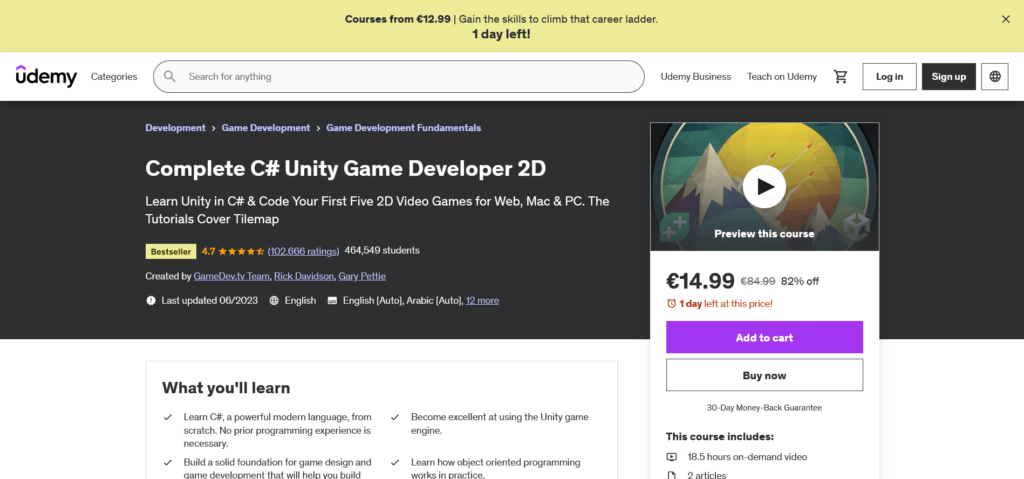
Udemy stands out for its extensive library of game development courses. From beginner-friendly introductions to advanced topics, Udemy’s courses cover various game development aspects, including programming languages, game design principles, and working with popular game engines like Unity and Unreal Engine.
Coursera
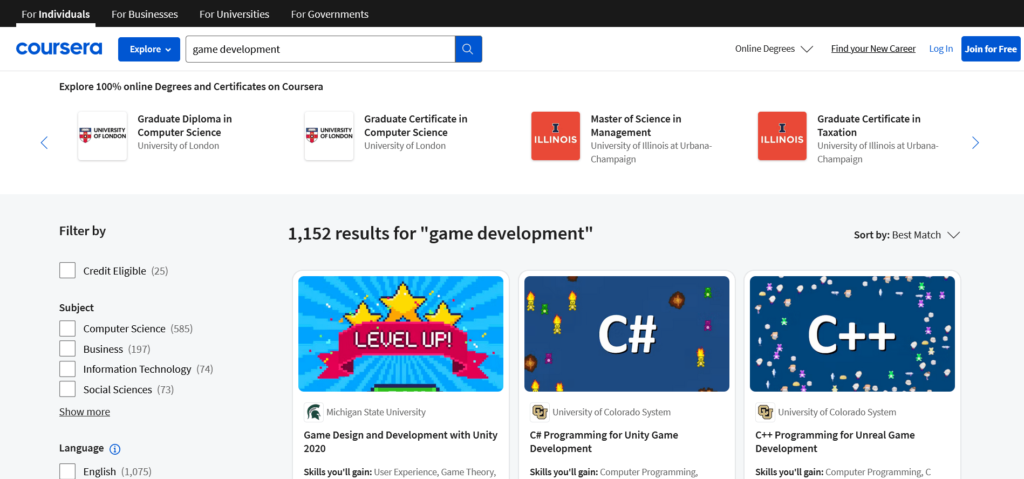
Coursera offers game development specializations and courses created by top universities and industry professionals. These programs cover a range of topics, from game design and programming to virtual reality (VR) development. Coursera’s structured approach allows learners to progress systematically.
LinkedIn Learning
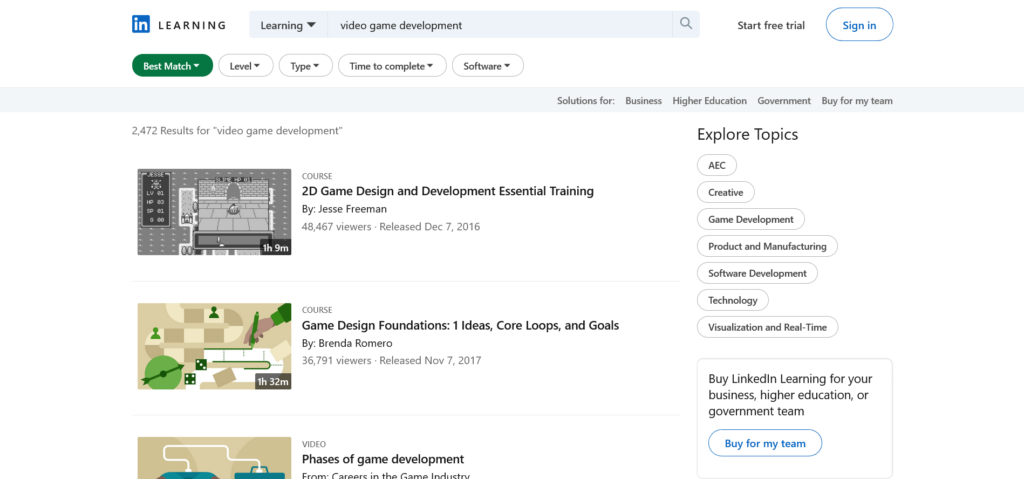
Formerly known as Lynda.com, LinkedIn Learning provides curated learning paths for video game development. These paths guide learners through essential concepts, tools, and languages used in the industry. The platform’s video tutorials and hands-on projects ensure an engaging learning experience.
Pluralsight
Pluralsight caters to tech professionals, offering in-depth learning paths for game development. With a focus on practical skills, Pluralsight covers coding languages, game engines, and specific development challenges. The platform is ideal for those seeking a technical and hands-on approach.
Unity Learn
Unity, one of the leading game development engines, provides its own learning platform – Unity Learn. From beginner tutorials to advanced courses, Unity Learn covers everything from the basics of Unity to creating multiplayer games. The platform also features real-world projects to reinforce learning.
edX
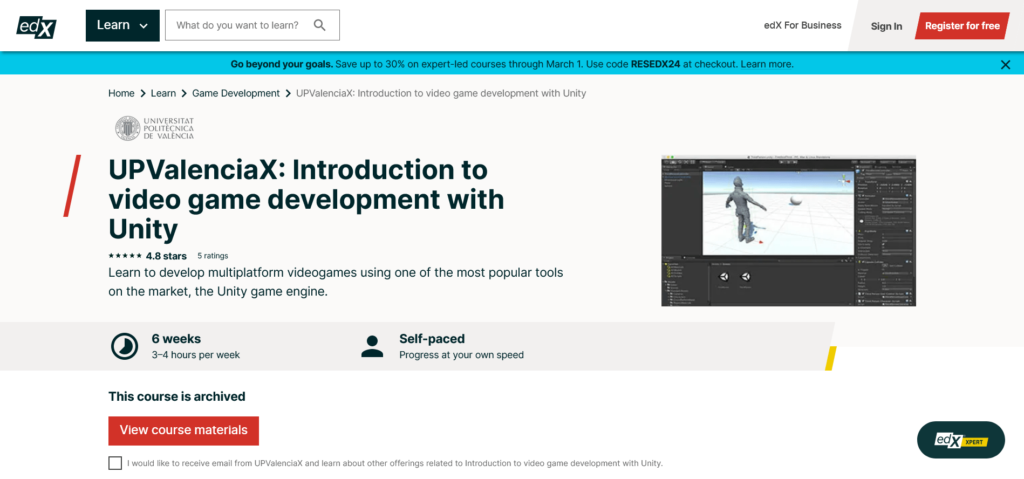
edX collaborates with universities worldwide to offer MicroMasters programs in game development. These comprehensive programs cover various aspects of game design, development, and project management. Successful completion often leads to academic credit.
Skillshare
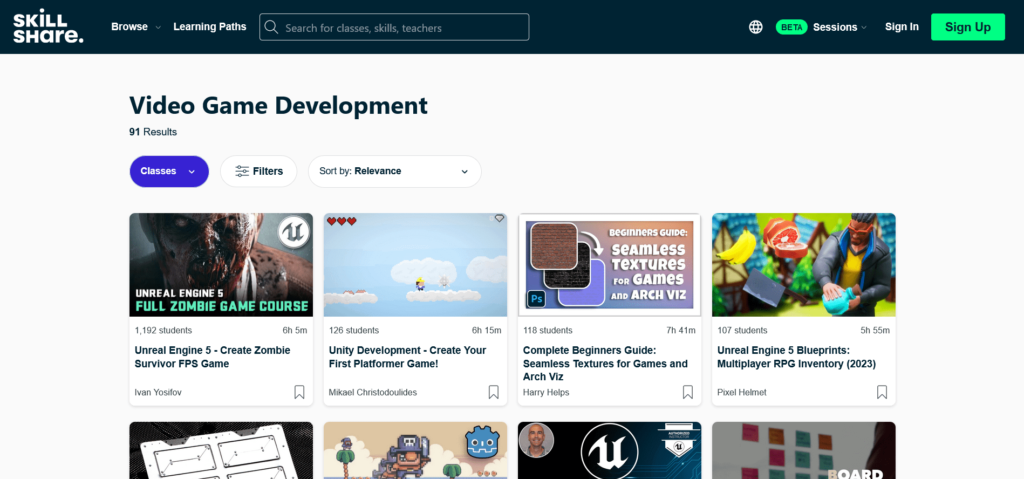
Skillshare is a creative learning platform that features a variety of game design and development classes. From concept creation to coding fundamentals, Skillshare’s diverse range of courses caters to learners with different skill levels and preferences.
FutureLearn
FutureLearn provides an “Introduction to Video Game Development” course, offering a comprehensive overview of the industry. The course covers key concepts, tools, and techniques used in game development, making it suitable for beginners.
Top 10 Questions About How to Develop a Video Game
1.How do I start developing a video game?
To kickstart your journey into game development, begin by learning the basics of programming and game design. Familiarize yourself with popular game development engines such as Unity or Unreal Engine. Utilize online resources, tutorials, and documentation to build a strong foundation.
2.What programming language is best for game development?
The choice of programming language depends on the game engine you select. For Unity, C# is commonly used, while Unreal Engine utilizes C++. Python and JavaScript are also viable options. Choose a language that aligns with your chosen game development platform and your personal preferences.
3.Do I need to be an artist to develop a video game?
While having artistic skills can enhance your game development process, it’s not a strict requirement. Many successful developers collaborate with artists for graphics and design elements. Focus on your strengths, and consider partnering with artists or using pre-made assets to complement your skills.
4.What is the importance of a game design document (GDD)?
A Game Design Document (GDD) serves as a blueprint for your game, outlining its concept, mechanics, and features. It provides a roadmap for development, helping you stay organized and focused. A well-crafted GDD also serves as a communication tool when collaborating with others.
5.How long does it take to develop a video game?
The development time for a video game varies widely based on factors such as complexity, team size, and scope. Simple games may take a few months, while larger, more intricate projects can span several years. Proper planning and efficient project management can help streamline the development process.
6.Is it necessary to learn 3D modeling for game development?
Not necessarily. While 3D modeling is essential for creating realistic 3D games, many successful games are built using 2D graphics. Choose the style that aligns with your vision and skill set. If 3D modeling is required, consider collaborating with skilled artists or using pre-made assets.
7.What are the best resources for learning game development?
Countless online resources cater to aspiring game developers. Platforms like Udemy, Coursera, and YouTube offer tutorials, courses, and communities dedicated to game development. Additionally, consider official documentation for game engines, forums, and engaging with the game development community.
8.Can I develop a game without coding skills?
While coding skills are advantageous, there are game development tools designed for those with limited coding experience. Platforms like RPG Maker and GameSalad provide a more visual, code-free approach to game development. Learning basic coding concepts, however, can significantly enhance your capabilities.
9.What are the common challenges in game development?
Game development presents challenges such as debugging, optimizing performance, and maintaining a balance between creativity and technical constraints. Staying resilient, seeking community support, and continuously learning are essential for overcoming these challenges.
10.How can I monetize my video game?
Monetization strategies vary, including in-app purchases, ads, and one-time purchases. Research successful models in your game’s genre and choose a strategy that aligns with your audience. Implementing ethical and player-friendly monetization practices contributes to long-term success.
Conclusion
In conclusion, the journey from conceptualization to launch in the realm of game development is both thrilling and challenging. Armed with the insights shared in this comprehensive guide on how to develop a video game, you’re now equipped to navigate the intricate terrain of game creation with confidence. Remember, the key to success lies in a well-defined concept, meticulous planning, and the seamless execution of your ideas. As you embark on your development adventure, continually refer back to the principles outlined in how to develop a video game to ensure a smooth progression from idea to reality. Let this article be your compass, guiding you through the diverse landscapes of coding, design, and player engagement. Best of luck on your journey to mastering the art and science of how to develop a video game. May your creations captivate audiences and leave an indelible mark in the ever-evolving world of gaming.














